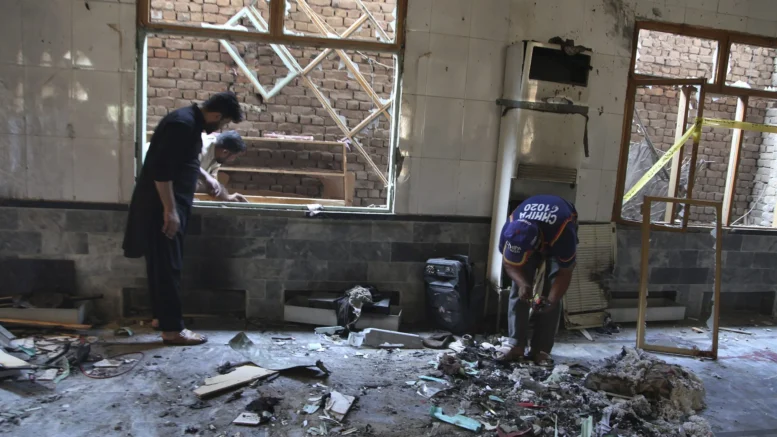Syed Talat Abbas Shah (X formerly Twitter @TalatLive)
Pakistan finds itself wrestling with a complex issue – religious extremism. While a recent incident involving a woman’s dress ignited the flames of religious sensitivity, it merely exposed the simmering pot of a deeper problem. This extremism poses a significant threat to societal harmony and progress. To truly vanquish this hydra-headed monster, a multi-pronged approach is crucial.
One key aspect is understanding the breeding ground. Socioeconomic inequalities breed frustration and alienation, making individuals susceptible to extremist ideologies. Political opportunists who exploit religion further exacerbate this by stoking the fires of intolerance. Education plays a vital role here. Deficiencies in critical thinking skills make people easy prey for extremist narratives. Integrating media literacy and fostering analytical thinking in educational reforms is essential.
External influences also play a role. The influx of foreign ideologies and funding can provide fertile ground for extremism. Additionally, Pakistan’s history of religious intolerance and sectarian violence leaves deep scars, creating a breeding ground for prejudice. Blasphemy accusations are often weaponized to target minorities, further widening the chasm between communities. Violence against religious minorities and their places of worship stands as a stark reminder of the dangers of unchecked extremism.
The digital age presents a new challenge. Online platforms become breeding grounds for radicalization, amplifying extremist propaganda and entrenching cycles of violence. Countering this requires a strong legal framework upholding the rule of law and ensuring equal protection for all citizens, regardless of their faith. Robust law enforcement agencies are essential to effectively prevent and respond to extremist acts.
However, law enforcement alone is insufficient. Fostering a culture of tolerance and acceptance is critical. Educational reforms focusing on inclusive narratives and responsible media representation can play a key role. Addressing socioeconomic disparities that create fertile ground for extremism is paramount. Religious leaders have a crucial part to play. They must unequivocally condemn violence and extremism, using their influence to champion peace and tolerance within their communities. Interfaith dialogue fostered through religious leaders’ active participation can promote mutual understanding and respect.
Beyond pronouncements, engaging in meaningful collaboration with other faith leaders is essential. Providing counselling and support to vulnerable individuals can offer them an alternative path, steering them away from extremism. Deradicalization programs for those already indoctrinated are also crucial.
Empowering communities through grassroots initiatives and development programs can address the root causes of extremism and build resilience against radicalization. Targeted educational campaigns and media initiatives promoting tolerance and respect for diversity can counter extremist narratives and foster social cohesion. Engaging civil society in peace-building efforts allows for collective action against extremism and promotes peaceful coexistence.
Pakistan’s fight against religious extremism requires a united front. By addressing the underlying causes, promoting interfaith dialogue, and fostering an inclusive narrative, Pakistan can pave the way for a future characterized by peace, tolerance, and the acceptance of diversity. In this endeavor, the contributions of the state, religious leaders, civil society, and every citizen are indispensable. Only through unwavering resolve can Pakistan overcome this challenge and build a brighter, more harmonious future.





